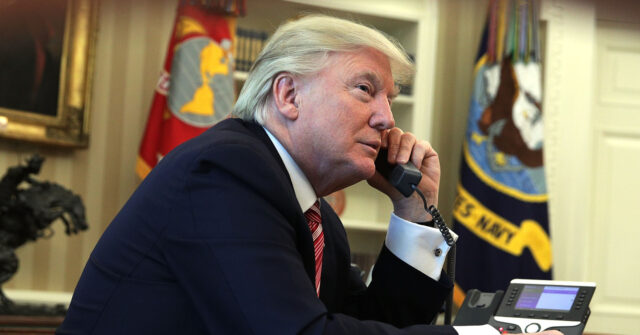U.S. President Donald J. Trump said Sunday evening that he has agreed to delay additional tariffs on the European Union after receiving a call from EU chief Ursula von der Leyen requesting an extension to come to a trade deal.
After President Trump branded the EU “very difficult to deal with” and warned that due to its intransigence, it could face a potential 50 per cent tariff by June 1st, Brussels appears willing to negotiate.
Taking to Truth Social on Sunday, the president said: “I received a call today from Ursula von der Leyen, President of the European Commission, requesting an extension on the June 1st deadline on the 50% Tariff with respect to Trade and the European Union.
“I agreed to the extension — July 9, 2025 — It was my privilege to do so. The Commission President said that talks will begin rapidly. Thank you for your attention to this matter!”
For her part, EU chief von der Leyen said that she had a “good call” with Trump, writing on X: “The EU and US share the world’s most consequential and close trade relationship. Europe is ready to advance talks swiftly and decisively.”
“To reach a good deal, we would need the time until July 9,” she added.
The bloc is currently already facing a 10 per cent flat tariff as well as a 25 per cent tariff on aluminium, cars, and steel.
While the Trump administration has already begun to agree to trade deals with countries like Brexit Britain — which benefited from no longer under the umbrella of Brussels — the EU has taken a harder line on talks with the Trump administration.
Earlier this week, Treasury Secretary Scott Bessent suggested that the EU may have a “collective action” problem, given that it represents 27 separate member states with varied economic interests. However, Bessent also suggested that President Trump’s upping of the ante may “light a fire under the EU” to get a deal done.
President Trump has long been critical of the European Union, declaring earlier this year that the bloc was created to “screw” the United States.
Indeed, the bloc emerged from the 1951 European Coal and Steel Community, which was founded to create a free trading zone within Europe while imposing trade barriers on third-party countries, notably the United States.
Although the Trump administration will likely demand that Europe lift some of its tariffs and other non-tariff barriers on American goods, the negotiations will also likely see the White House press the EU to reduce its reliance on Communist China.
In 2024, the U.S. stood as the EU’s top trading partner, representing 17 per cent of all trade with the bloc, with China coming in second at 15 per cent.
However, the EU imported significantly more goods from China than from America, with Chinese imports totalling nearly €520 billion compared to €335 billion from the United States.
Follow Kurt Zindulka on X: Follow @KurtZindulka or e-mail to: [email protected]
Read the full article here
